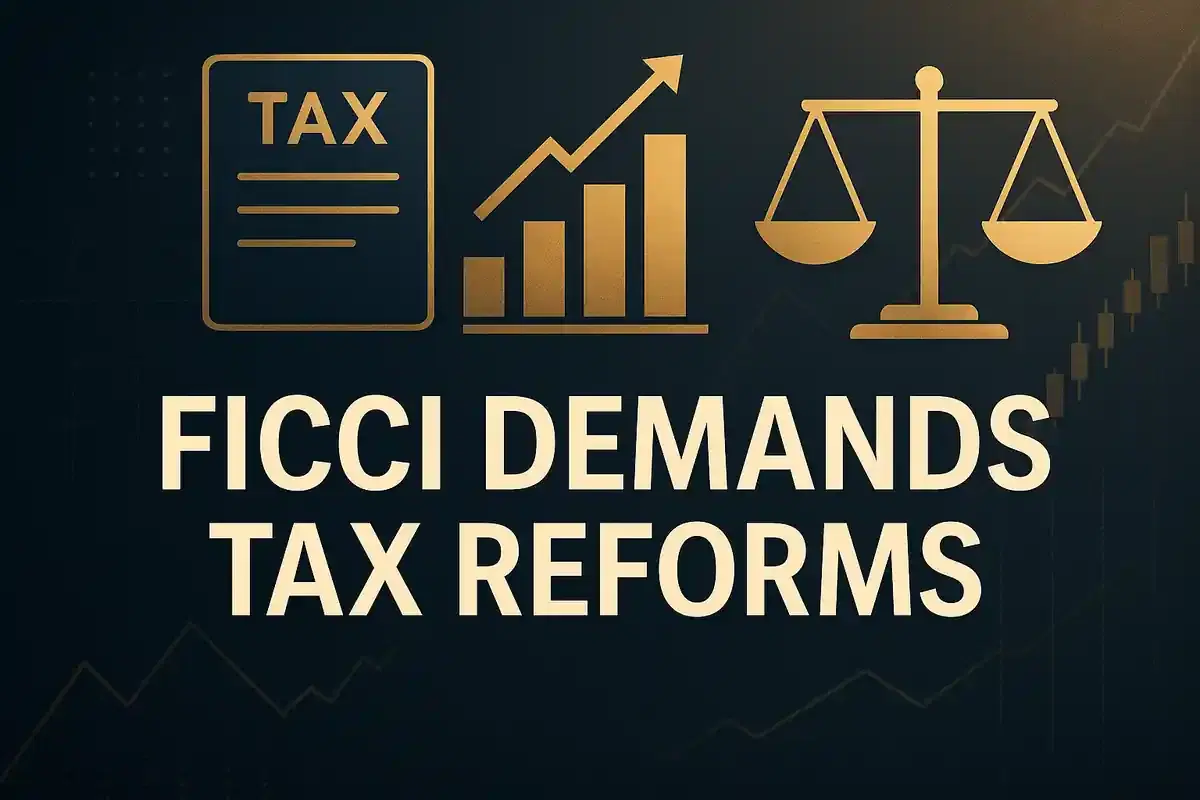FICCI Urges Finance Ministry to Simplify TDS Norms and Expedite Tax Appeals
Economy
|
28th October 2025, 4:13 PM

▶
Short Description :
Detailed Coverage :
The Federation of Indian Chambers of Commerce & Industry (FICCI) has formally requested the Finance Ministry to streamline the Tax Deducted at Source (TDS) regulations as part of its pre-budget proposals. FICCI argues that the current system, with 37 different TDS rates for payments to residents ranging from 0.1% to 30%, leads to unnecessary disputes over categorisation and interpretation, thereby blocking industry cash flow. They propose a simplified structure with only three main TDS rates: slab rates for salaries, the maximum marginal rate for lotteries and online games, and two standard rates for other categories.
Furthermore, FICCI emphasized the urgent need to clear the backlog of tax appeals. They highlighted that as of April 1, 2025, approximately 5.4 lakh appeals, amounting to ₹18.16 lakh crore, are pending before the Commissioner of Income Tax-Appeals (CIT(A)). To expedite this, FICCI suggested prioritizing high-demand cases and those with complete submissions, filling 40% of CIT(A) vacancies immediately, and allowing refunds during the pendency of appeals. The industry body also sought clarity on the tax neutrality of fast-track demergers and the restoration of the old definition of Associated Enterprise (AE) to ensure policy continuity and reduce litigation.
Impact: These recommendations, if implemented, could significantly ease the compliance burden for businesses, improve cash flow, reduce litigation, and enhance the overall ease of doing business in India. This would positively influence investor sentiment and potentially boost economic activity. Rating: 8/10.
Difficult Terms: TDS (Tax Deducted at Source): A tax collected at the point where income is earned. For example, an employer deducts TDS from salary before paying the employee. Rationalize: To make a system more logical, efficient, and consistent. Pendency: The state of a case or matter waiting to be processed or resolved. First Level of Appeal: The initial stage where a taxpayer can challenge an assessment order from tax authorities, typically before the Commissioner of Income Tax-Appeals. Refund of Taxes: The reimbursement of excess taxes paid by a taxpayer. Cash Flow Blockage: When money that should be available to a business is held up, preventing its use. Pre-budget Memorandum: A document submitted by industry bodies or stakeholders to the government before the annual budget, outlining their suggestions and demands. Commissioner of Income Tax-Appeal (CIT(A)): An appellate authority within the Income Tax Department where taxpayers can appeal against assessment orders. Faceless Appeal System: A system where tax appeals are processed electronically without direct physical interaction between the taxpayer and the tax officer. Assessment Order: An official document issued by the tax authorities determining the amount of tax payable by a taxpayer. Dispute Resolution Panel (DRP): A panel that resolves disputes between taxpayers and the assessing officer in certain cases. High-Pitched Assessment/High Tax Demand Cases: Cases where tax authorities make very high demands or assessments, often perceived by taxpayers as excessive. Written Submission: A detailed document submitted by a party in a legal or administrative proceeding, presenting their arguments and evidence. CBDT (Central Board of Direct Taxes): The apex body responsible for direct tax administration in India. Demergers: The process where a company separates into two or more distinct entities. Tax Neutrality: A situation where a transaction does not result in any tax liability or benefit for the parties involved. NCLT (National Company Law Tribunal): A quasi-judicial body in India that oversees matters related to companies. Associated Enterprise (AE): Two or more enterprises that are linked through ownership or control, relevant for transfer pricing regulations. Transfer Pricing (TP) Compliance: Regulations governing the pricing of transactions between associated enterprises to ensure fair taxation.